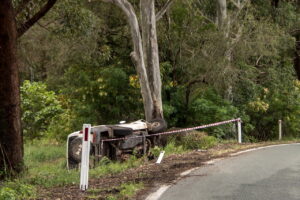Jonah 3: 1-5, 10; Psalm 25 (RM) or 62 (RCL); 1 Corinthians 7: 29-31; Mark 1: 14-20.
Lectionaries are works in progress. …so are calls…
This week, conveniently, the Roman Missal for Canada and the U.S., and the Revised Common Lectionary, share a Gospel reading: a brief account of Jesus calling, first Peter and Andrew, then James and his brother John, to come with him. The Canadian RM and the RCL use the New Revised Standard version and have Jesus saying,
“Come follow me and I will make you fishers of people.”
The U.S. Catholic bishops, bless their little hearts … very, very little hearts … still use “fishers of men.”
That’s actually an accurate reading of the story here because Jesus has not called any women in this passage. Just imagine if he had. Play with the story a bit. Visualize walking away from a half-kneaded mound of bread dough and leaving it on the board by the oven, or dumping a sopping wet pile of laundry in the tub. Imagine not telling your husband, or children, or mother-in-law (these were multi-generational households) where you’re going. Just. Walk. Away. And follow this curiously compelling prophet to God-knows-where.
We needn’t take the story’s details too literally to catch the point that meeting Jesus tended to provoke a radical reordering of one’s priorities in life. That’s what is meant by the call to metanoia, to conversion. We may be used to reading this as a moral turnaround, particularly because that’s the context given to conversion by the prophets such as John the Baptist, and generations of moralistic preaching. This can work well in contemporary twelve-step programs, when Step Four is “Made a searching and fearless moral inventory of ourselves,” and the rest is built upon acknowledgement of wrongs, making amends, and moving forward into the future in a healthy and honest manner.
In the area of faith, however, I suspect this can fold over too easily into a sort of lingering shame, a sense of humiliation that can follow one like an invisible shadow. Passing shame over a particular act can be a realistic reaction if it spurs one to awareness and resolve to do better. Toxic shame hovers overhead to colour one’s self-worth.
Jesus isn’t calling anyone to shame here, but instead to “proclaim the good news.” For the Hebrew people of his time this echoed a clarion call by the prophets for leadership that brought the people closer to a holy and just way of life. For us it might be proclaiming hope against hope, when we’re faced with so many compelling concerns and threatening situations, globally, nationally and locally.
The writer of Mark’s favourite word is euthys, “immediately.” Jesus and his entourage were always moving on “immediately.” There’s no time to mess around, not for them, and not for us. The cries of pain and the appeal for hope can’t wait.
© Susan K. Roll
Susan Roll retired from the Faculty of Theology at Saint Paul University, Ottawa, in 2018, where she served as Director of the Sophia Research Centre. Her research and publications are centred in the fields of liturgy, sacraments, and feminist theology. She holds a Ph.D. from the Catholic University of Leuven (Louvain), Belgium, and has been involved with international academic societies in liturgy and theology, as well as university chaplaincy, Indigenous ministry and church reform projects.





I have just got off the phone, after being “on hold” for 52 minutes. I know that my time is very important to this organization, as they repeatedly told me so as they encouraged me to stay on hold.
Reading your post Susan, following that experience, and being told that the “writer of Mark’s favourite word is euthys, “immediately” had a curiously soothing effect! ‘Jesus and his entourage were always moving on “immediately”’ to meet the need of suffering. Such focused action inspires!